
MRI
Latest News


FDA Clears Remote Scanning Platform TechLive for MRI, CT, PET/CT and Ultrasound

Study: White Women 11 Times More Likely than Black Women to Be Eligible for Supplemental Breast Cancer Screening in Pennsylvania
Latest Videos

CME Content
More News

Catch up on the top radiology content of the past week.

In the last of a three-part podcast episode, Stamatia Destounis, MD, Emily Conant, MD and Habib Rahbar, MD, share additional insights on practical considerations and potential challenges in integrating abbreviated breast MRI into clinical practice, and offer their thoughts on future research directions.

In the third of a three-part podcast episode, Emanuel Kanal, M.D. and Tobias Gilk, MRSO, MRSE, discuss strategies for maintaining the integrity of time-out procedures and communication with remote MRI scanning.

An analysis of over 749,000 Medicare beneficiaries diagnosed with prostate cancer over a five-year period found that Black men were 13 percent less likely to receive PET imaging and 16 percent less likely to receive MRI in comparison to White men.
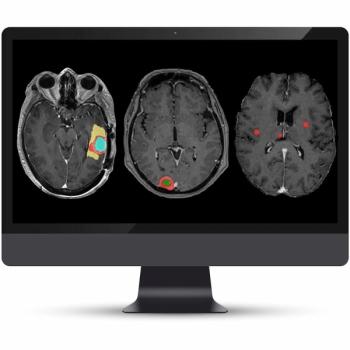
The addition of two new AI-enabled models for the latest version of the NeuroQuant Brain Tumor software facilitates automated tracking of the progression of brain tumors and meningiomas.
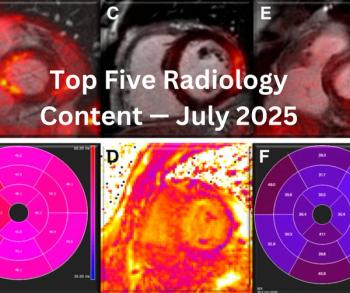
Catch up on the most-well viewed radiology content in July 2025.

Catch up on the top AI-related news and research in radiology over the past month.

Catch up on the top radiology content of the past week.

In the second of a multi-part podcast episode, Emanuel Kanal, M.D. and Tobias Gilk, MRSO, MRSE, share their perspectives on remote MRI safety protocols for ensuring screening accuracy and adherence to conditional implant guidelines as well as a rapid and effective response to adverse events.

Beyond the hype, whole-body MRI offers limited clinical benefit in the general population with extraneous use potentially triggering a cycle of overdiagnosis, unnecessary treatment and financial strain.

In the second part of a multi-part podcast episode, Stamatia Destounis, MD, Emily Conant, MD and Habib Rahbar, MD, discuss key sequences for abbreviated breast MRI and how it stacks up to other breast cancer screening modalities.
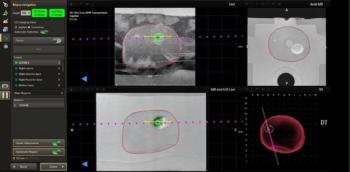
Advanced annotation with the updated UroNav MRI/ultrasound fusion platform may facilitate enhanced precision and efficiency with focal therapies for prostate cancer.
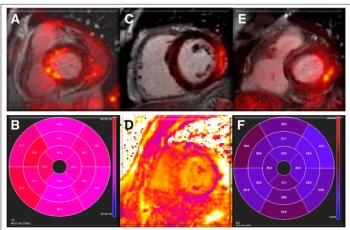
Study Reveals Significant Prevalence of Abnormal PET/MRI and Dual-Energy CT Findings with Long Covid
In a prospective study involving nearly 100 patients with Long Covid, 57 percent of patients had PET/MRI abnormalities and 90 percent of the cohort had abnormalities on dual-energy CT scans.

In the first of a multi-part podcast episode, Emanuel Kanal, MD and Tobias Gilk share their insights and perspectives on remote MRI safety.

Catch up on the latest MRI studies, AI innovations, and expert insights on abbreviated breast MRI with our Weekly Scan.

In the first of a multi-part podcast episode, Stamatia Destounis, MD, Emily Conant, MD and Habib Rahbar, MD, share their insights on the role of abbreviated breast MRI in breast screening.
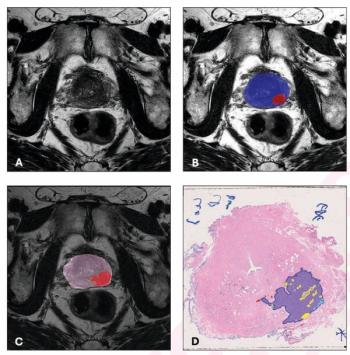
The use of adjunctive bpMRI-based AI led to 10 percent and greater increases in lesion-level PPV for csPCa and PCa with a threshold of PI-RADS > 3.
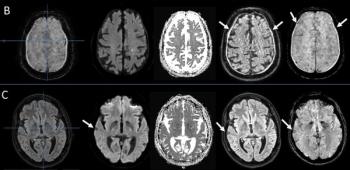
Noting a 7.4 percent incidence of motion artifacts on brain MRI scans for suspected stroke patients, the authors of a new study found that motion artifacts can reduce radiologist and AI accuracy for detecting hemorrhagic lesions.
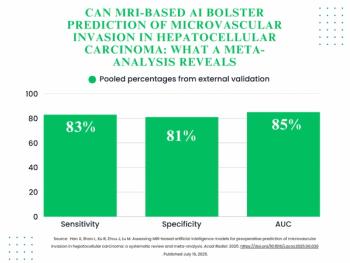
In external validation findings from a 29-study meta-analysis, MRI-based AI had a pooled AUC of 85 percent for preoperative prediction for microvascular invasion in patients with hepatocellular carcinoma.
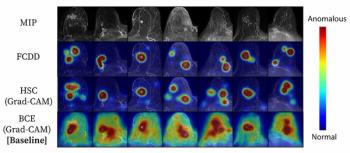
A fully convolutional data description (FCDD) model for identifying anomalies on breast MRI demonstrated an 84 percent AUC for detection tasks in a balanced cohort with a 20 percent malignancy prevalence and a 72 percent AUC for detection tasks in an imbalanced group with a 1.85 percent cancer prevalence.
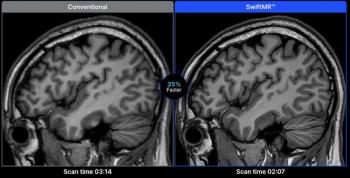
The updated capabilities of SwiftMR include personalized scan settings within the software, artifact reduction and cloud integration.
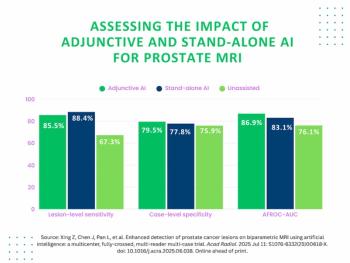
Emerging research revealed significantly enhanced sensitivity for prostate cancer detection with adjunctive and stand-alone use of AI.
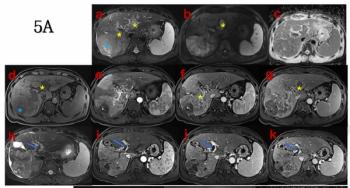
For patients with unresectable hepatocellular carcinoma, a pre-treatment MRI finding of LI-RADS tumor in vein was associated with over an 86 percent lower likelihood of responding to transcatheter arterial chemoembolization (TACE) and targeted immunotherapy.

Stay updated with the latest in radiology, including PET, MRI, and AI research, plus essential insights on mammography and cardiac imaging.

For patients with advanced Parkinson’s disease, the expanded FDA approval of the Exablate Neuro platform allows for the use of MRI-guided focused ultrasound in performing staged bilateral pallidothalamic tractotomy.



















